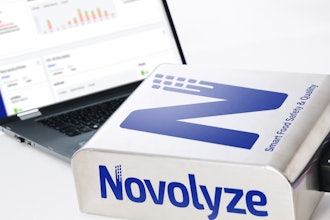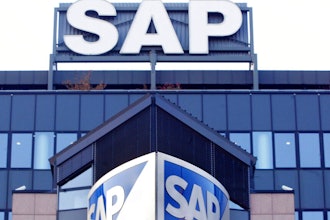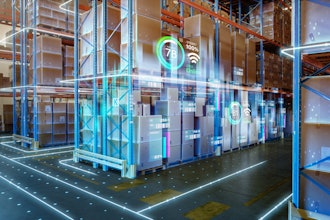
 Jack Payne, VP, Product Management & Solutions Consulting, Aptean
Jack Payne, VP, Product Management & Solutions Consulting, ApteanA customer of mine recently relayed a story about how rapidly technology has evolved: during the early days of the computer, his company’s new server was so large that the president had to give up his office to make room.
Today, server rooms are vanishing to make room for more desk space — 73 percent of companies plan to move to a fully software-defined data center by 2020, according to Forbes. Cost savings, host expertise and configurability all play a role in a company’s decision to outsource hosting.
For some food manufacturers, however, the transition to cloud-based data management has been slower. Security concerns tend to be a sticking point, as manufacturers fear that a competitor will be able to hack into their data in the cloud and steal their recipes and customers. We’ve all heard stories about how Coca-Cola keeps its formula under lock-and-key. Still, this concern isn’t unique to food manufacturers — the same study cited by Forbes found that 49 percent of businesses are delaying cloud deployment because of a cybersecurity skills gap.
If you’re wavering on cloud migration, consider a few different angles. What will the move ultimately cost? What type of service should I expect? And will my data be safe?
Security: Your Digital Vault
Let’s tackle the burning issue first: your data is not only safe on the cloud — it may even be safer than it is on your internal server. In fact, the chances are greater that one of your employees walks out with a printed version of your recipe than a hacker breaks into your cloud host.
In 2017, Gartner concluded that “the security posture of major cloud providers is as good as or better than most enterprise data centers and security should no longer be considered a primary inhibitor to the adoption of public cloud services.” Their analysts recommended that organizations automate as much of the deployment process as possible to avoid security risks caused by human error. Ultimately, Gartner found 60 percent of enterprises that implement appropriate cloud visibility and control tools this year will experience one-third fewer security failures.
Just as you’re an expert in food manufacturing, your cloud host should be an expert in security. Their job is to protect your data 24/7, and they’re required to maintain the latest security standards in a cloud environment. The cloud allows you to turn your attention away from technology concerns and back to doing what you do best to generate revenue and reduce costs.
Cost: Buy Or Rent?
Cost can be a more complicated issue to address than security. Investing in a cloud deployment is somewhat like buying a home vs. renting an apartment. When you purchase the home, there is a more significant upfront investment and you have total control over it — you’re responsible for the upkeep, and as it ages, it will require more investment and updating. When you rent an apartment, you don’t own your residence, but the landlord is responsible for upkeep.
When you purchase an internal server, you retain control over every aspect of your data — a comforting thought for some executives. If you have an IT team that can dedicate significant time to server upkeep, in-house data management may be the best option for you. However, when you adopt a cloud strategy, your vendor is dedicated to keeping their service up to date — and the top providers can easily reconfigure your cloud to scale as your company grows.
Data hosting affects the bottom line differently for every company. However, cloud adoption may save you significant capital in the long run. You’ll need to consider a number of factors before deciding which is the more cost-effective solution. Do you have the right expertise in-house to manage your server? Do you plan to grow in the next few years — and if so, can your critical programs, such as your enterprise resource planning system, scale with you?
Service: No Time For Downtime
Every minute of downtime is potentially thousands of dollars lost. When we say one cloud has 99.99 percent uptime, and another has 99.999 percent uptime, the difference may seem minimal — but 53 minutes of downtime a year vs. five minutes of downtime a year may be significant.
Chances are you won’t find a reputable in-house server that has lower than 99 percent uptime. Still, what happens during downtime is crucial. If you have an expert IT staff, they may be able to get your server back online with minimal monetary impact. But if they can’t fix the problem, you’ll continue to lose productivity and revenue. With cloud-based hosting, you’ll have an expert vendor focused on getting your operations back online.
Another reason to consider the cloud: disaster recovery. Say a fire burns down your office, or a power surge fries your electronics. With an in-house sever, your production system may take days to restore. A cloud, however, can not be scorched or fried. Even if you lose your physical office, you’ll be able to access your data from your temporary workspace.
Verdict: Embrace The Cloud
It’s unlikely that your executives will ever have to give up their offices for servers again. As technology advances, we’ve learned that cloud hosting is not only more economical, but also more secure. That’s music to the ears of executives who subscribe to a “less is more” philosophy.
If you’re a small manufacturer and plan to remain that way, an existing in-house server may be the right call. For every other food manufacturer, however, it’s time to seriously consider cloud-based data management.
Jack Payne is VP, Product Management & Solutions Consulting for Aptean























